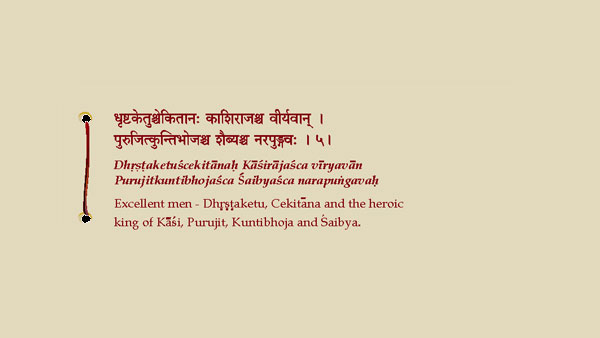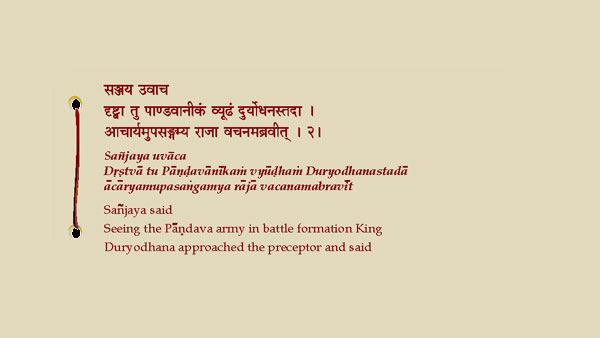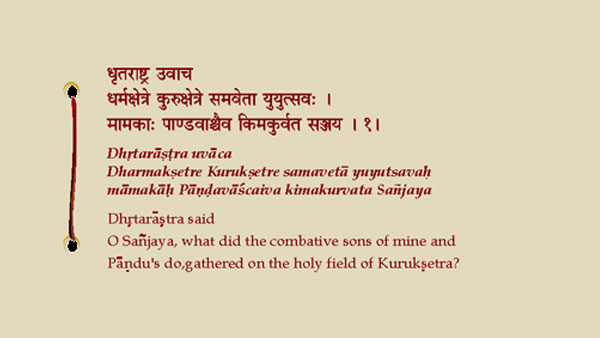
Dronacarya, the revered guru of both the Pandavas and the Kauravas was a mighty warrior. Though a Brahmana by birth and son of the famous sage Bharadvaja, he was well-versed in the science of archery. He taught the same skill to the Pandavas and Kauravas. When the war began he reluctantly went over to the Kaurava side as he was a loyal soldier of the State and felt beholden to the Kauravas. He assumed command of the Pandava forces after Bhisma was mortally wounded and lay on a bed of arrows. He fought valiantly for four successive days, killing thousands of warriors on the Pandava side. He killed Drupada, father of Draupadi and Dhrstadyumna, in the battle. He was, in turn, killed by Dhrstadyumna.
Duryodhana asks Dronacarya to see the powerful army of ‘Pandu’s sons’ led by ‘Drupada’s son’. This indicates the estrangement and distance he feels towards his own brothers and brother-in-law respectively. They were one family that was torn apart by Duryodhana’s selfishness, jealousy and bitterness. Duryodhana mockingly refers to Drupada’s son as Drona’s wise disciple. He resents the fact that Drona trained him well and is afraid of his credentials.
Duryodhana speaks of the might of the Pandava forces despite his own army being considerably larger. The Pandavas had only seven aksauhinis or battalions while the Kauravas had 11. An aksauhini consisted of 21,870 chariots, 21,870 elephants, 65,610 horses and 1,09,350 foot soldiers. The commander of each aksauhini was a maharatha, the highest title bestowed on a ksatriya warrior. Duryodhana feels insecure in spite of having the stalwarts Bhisma and Dronacarya on his side. Insecurity stems from within and is independent of the wealth or power one may have. Those who are most powerful are often insecure. A person with nothing may feel totally secure. Insecurity and fear arise from violating your conscience and the consequent guilt of having done wrong. Duryodhana has committed the most atrocious acts and has been unjust and vicious. Hence the fear.



